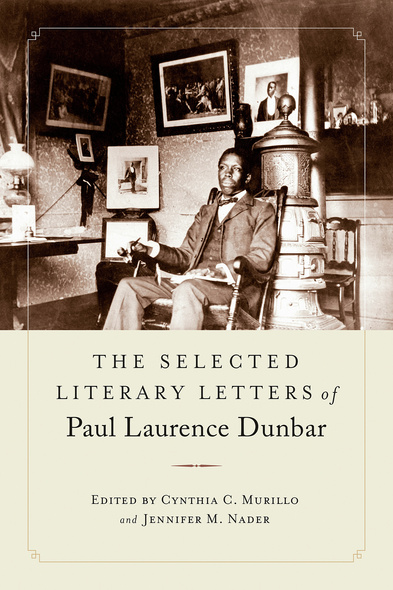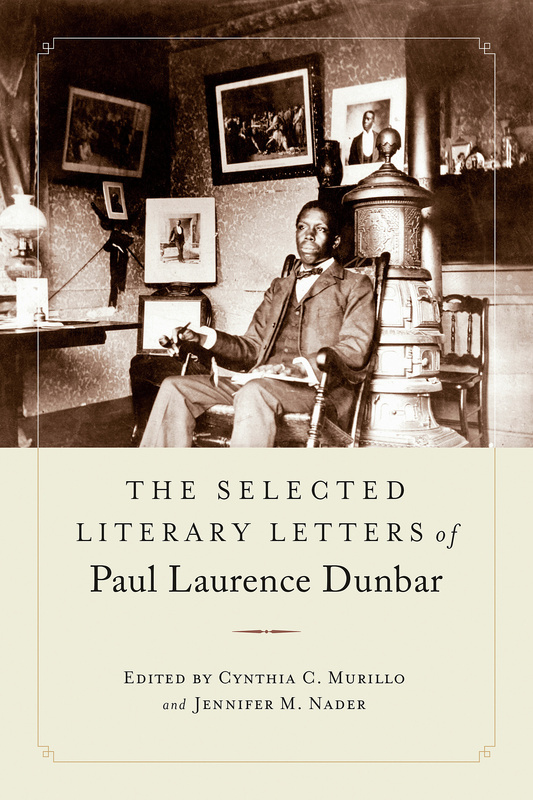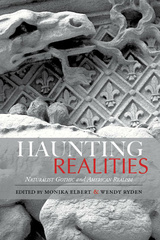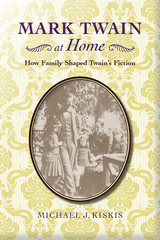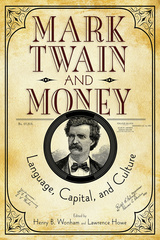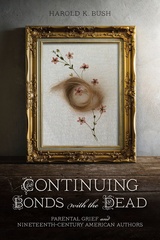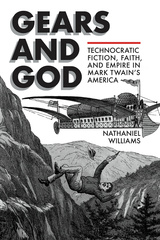The Selected Literary Letters of Paul Laurence Dunbar
University of Alabama Press
These 250 transcribed and annotated letters reveal the personal and literary life of one of the most highly regarded African American writers and intellectuals
Paul Laurence Dunbar (1873–1906) was arguably the most famous African American poet, novelist, and dramatist at the turn of the twentieth century and one of the earliest African American writers to receive national recognition and appreciation. Scholars have taken a renewed interest in Dunbar but much is still unknown about this once-famous African American author’s life and literary efforts. Dunbar’s letters to various editors, friends, benefactors, scholars, and family members are crucial to any critical or theoretical understanding of his journey as a writer. His literary correspondence, in particular, records the development of an extraordinary figure whose work reached a broad readership in his lifetime, but not without considerable cost.
The Selected Literary Letters of Paul Laurence Dunbar is a collection of 250 letters, transcribed and annotated, that reveal the personal and literary life of one of the most highly regarded African American writers and intellectuals. Editors Cynthia C. Murillo and Jennifer M. Nader highlight Dunbar not just as a determined author and master of rhetoric, but also as a young, sensitive, thoughtful, keenly intelligent, and talented writer who battled depression, alcoholism, and tuberculosis as well as rejection and racism. Despite Dunbar’s personal struggles, his literary letters disclose that he was full of hopes and dreams coupled with the resolve to flourish as a writer—at almost any cost, even when it caused controversy.
Taken together, Dunbar’s letters depict his concerted effort to succeed as an author within an overtly racist literary culture, among sharp divides within the African American intellectual community, and in opposition to the demands of popular public tastes—often dictated by the demands of publishers. This wide-ranging selection of Dunbar’s most relevant literary letters will serve to correct many matters of conjecture about Dunbar’s life, writing, and choices by supplying factual evidence to counter speculation, assumption, and incomplete information.
Paul Laurence Dunbar (1873–1906) was arguably the most famous African American poet, novelist, and dramatist at the turn of the twentieth century and one of the earliest African American writers to receive national recognition and appreciation. Scholars have taken a renewed interest in Dunbar but much is still unknown about this once-famous African American author’s life and literary efforts. Dunbar’s letters to various editors, friends, benefactors, scholars, and family members are crucial to any critical or theoretical understanding of his journey as a writer. His literary correspondence, in particular, records the development of an extraordinary figure whose work reached a broad readership in his lifetime, but not without considerable cost.
The Selected Literary Letters of Paul Laurence Dunbar is a collection of 250 letters, transcribed and annotated, that reveal the personal and literary life of one of the most highly regarded African American writers and intellectuals. Editors Cynthia C. Murillo and Jennifer M. Nader highlight Dunbar not just as a determined author and master of rhetoric, but also as a young, sensitive, thoughtful, keenly intelligent, and talented writer who battled depression, alcoholism, and tuberculosis as well as rejection and racism. Despite Dunbar’s personal struggles, his literary letters disclose that he was full of hopes and dreams coupled with the resolve to flourish as a writer—at almost any cost, even when it caused controversy.
Taken together, Dunbar’s letters depict his concerted effort to succeed as an author within an overtly racist literary culture, among sharp divides within the African American intellectual community, and in opposition to the demands of popular public tastes—often dictated by the demands of publishers. This wide-ranging selection of Dunbar’s most relevant literary letters will serve to correct many matters of conjecture about Dunbar’s life, writing, and choices by supplying factual evidence to counter speculation, assumption, and incomplete information.
This book provides insight into the writer and the admiration and devotion he inspired. Taken as a whole, these letters support Dunbar's proud claim to Booker T. Washington that he had ‘gotten nothing without working for it and [had] contested every bit of the ground over which I have passed’ (85). But what finally this collection proves is that we really need a scholarly biography that will do justice to the many facets of this complex, driven artist who was the first Black writer in the US to succeed in making a living from his art.’
—ALH Online Review
‘Born the son of slaves and dead (from complications from tuberculosis and alcoholism) at the early age of 33, Dunbar is a paragon of a gifted and determined writer and certainly worthy of understanding and appreciation. This collection is a crucial addition to the study of early African American literature and the complex integration of Black writers into the national corpus before the Harlem Renaissance. Highly recommended.’
—CHOICE
‘In presenting Dunbar’s correspondence with editors, supporters, admirers, and critics, The Selected Literary Letters of Paul Laurence Dunbar adds to our understanding of an important and under-appreciated figure.’
—Henry B. Wonham, coeditor of Mark Twain and Money: Language, Capital, and Culture
An invaluable window on the deliberate way in which Dunbar built his literary career. The Selected Literary Letters of Paul Laurence Dunbar also illuminates the wide range of his network of Black and white intellectuals, artists, and political leaders from Frederick Douglass to Theodore Roosevelt.’
—James Smethurst, author of The African American Roots of Modernism
Cynthia C. Murillo is instructor in the College of Liberal Arts at Colorado State University where she teaches courses on world literature and interdisciplinary liberal arts.
Jennifer M. Nader is visiting instructor in the Department of Humanities and Communication at Embry-Riddle Aeronautical University where she teaches courses in college writing, literature, technical writing, and business communication.
Jennifer M. Nader is visiting instructor in the Department of Humanities and Communication at Embry-Riddle Aeronautical University where she teaches courses in college writing, literature, technical writing, and business communication.

